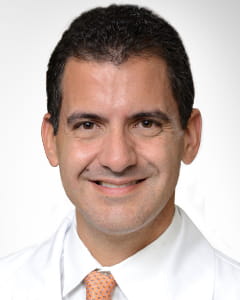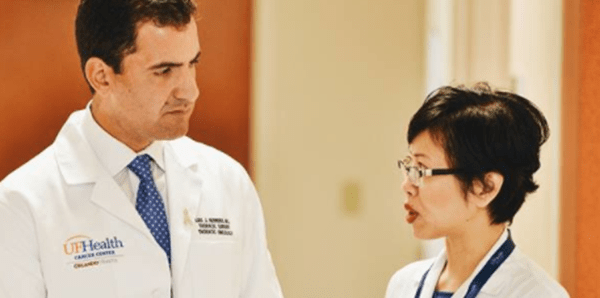Early Treatment May Improve Lung Cancer Survivorship
This year, there will be 222,500 new cases of lung cancer, but a recent study indicates there may be better odds of survival in people diagnosed with this disease at an early stage.
In the study, published in The Annals of Thoracic Surgery, researchers reviewed data for nearly 65,200 patients who were diagnosed with stage 1 non-small-cell lung cancer between 2000 and 2010. Sixty-two percent of these patients had surgery as their primary treatment, 15 percent underwent radiation treatment, 3 percent underwent both surgery and radiation and 18 percent did not receive either treatment.
Researchers discovered the two-year survival rate for patients who had either surgery or radiation increased from 61 percent in 2000 to 70 percent in 2009. During the 10-year period researchers examined, surgery or radiation treatment for stage 1 non-small-cell lung cancer also became more widely used. About 58 percent of patients had surgery in 2000 compared to nearly 64 percent in 2010. About 17 percent of patients underwent radiation treatment in 2000 compared to just over 18 percent of patients in 2010.
The prevalence of these treatment approaches may have increased because of the increased availability of more advanced techniques for delivering radiation therapy and of less invasive surgical approaches. As treatment has advanced, the mortality risk for lung cancer also has decreased. Researchers found that these treatment improvements correlated with a 3.5 percent reduction in lung cancer death risk.
Though these findings are a silver lining and may offer renewed hope for patients diagnosed with early-stage lung cancer, researchers also found there’s a significant treatment gap that we need to address.
About 20 percent of patients received treatment for stage 1 non-small-cell lung cancer in 2000, while a little more than 15 percent did so in 2010. Dr. Nirav Kapadia, the study’s lead author, said this form of lung cancer is highly curable and that it is critical for more patients to get proper treatment.
"We were disappointed to see only a modest reduction in the number of untreated patients, which remained unacceptably high," he said. "Our hope is that future clinical, research, and policy efforts focus on reducing that number as close to zero as possible."
Stage 1 non-small-cell lung cancer is the most common form of lung cancer, and lung cancer is the leading cause of cancer death in the country. The figures for this disease are daunting, but as this study indicates, treatment advances can help us increase survivorship.
Like many cancers, early detection is key to improving health outcomes. If you experience symptoms like coughing up blood or rust-colored phlegm, a cough that doesn’t go away or gets worse, a hoarse voice, chest pain, unexplained weight loss or loss of appetite, wheezing, fatigue, shortness of breath or recurring bronchitis or pneumonia, don’t hesitate to see a doctor to find out what’s going on. A proper diagnosis, whether or not it’s lung cancer, can give you peace of mind. But if you are diagnosed with this disease, getting treatment early — whether it’s surgery or radiation — could significantly increase your chances of survival.
Are you interested in learning more about Orlando Health's Lung Cancer Screening?
When caught early, lung cancer may respond well to treatment. We offer a combination of surgery, chemotherapy, radiation, and palliative care, depending on the type and progression of your lung cancer.
Learn More Here


